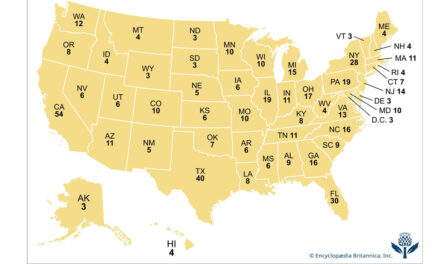
Zika Virus, Responsible for 4000 deformed Babies in Brazil Since October, Headed for United States
The mosquito-borne virus termed “Zika” has swept through more than 20 countries since its initial outbreak in Brazil last May. While the illness is mild, Zika has been found to cause horrific birth defects. The CDC has issued a level 2 travel alert for persons traveling to infected areas while the World Health Organization (WHO) has predicted that the virus will “continue to spread and will likely reach all countries and territories of the region where Aedes mosquitoes are found.”
Pregnant woman who become infected with the virus have a significantly increased chance of giving birth to a baby with a rare condition called microcephaly. This defect causes the brain to develop improperly and results in a tiny head. Most infants with microcephaly die shortly after birth.
Since last October, Brazil has seen more than 4,000 babies born with this defect.
Worries are growing about the potential of an epidemic in the United States as experts announce “explosive pandemic potential.” There have already been 31 reported cases of the virus in the US – all from travelers returning from other countries. The CDC announced last week that these imported cases could easily mutate into an epidemic. Zika has been documented in California, Arkansas, and Virginia.
“The level of alarm is extremely high, as is the level of uncertainty. Questions abound,” said a WHO spokesperson. “We need to get some answers quickly. Marcos Espinal of the Pan American Health Organization says “we can expect 3 to 4 million cases of Zika virus disease” in the US. This estimate is based on the fact that 200 million Americans live in Aedes mosquito territory.
Since we have no drugs or vaccines to treat Zika, halting travel to infected areas is the best hope we have of preventing an outbreak in the United States.
“Currently, I am telling my pregnant patients not to travel to locations where the Zika virus has been identified,” says New York Obstetrician William Schweizer. “If we are treating mothers who have a history of traveling to these places, we are having them get more frequent ultrasounds to make sure their babies are growing properly. I am also giving my patients other practical advice like having them purchase travel insurance.”
United Airlines and American Airlines are offering refunds to pregnant travelers who have already purchased tickets to Zika-infected countries. Anyone living in an area where the Aedes mosquito is prevalent is advised to use bug spray, where clothing that covers the entire body, and sleep beneath a mosquito net.
Some countries have actually asked women planning to become pregnant to wait until 2018.
Zika symptoms include joint pain, red eyes, rash, and fever. Some victims will experience no symptoms, but can still spread the condition to others through mosquito bites. The Aedes mosquito (pictured above) inhabits South America, Africa, southeast Asia, southern Europe, Mexico, the southeastern United States, northern Australia, and most Pacific Islands.
The Zika virus has been documented in the following countries: United States, Brazil, Africa, Asia (southeast), Samoa, Puerto Rico, Barbados, Bolivia, Colombia, Dominican Republic, Ecuador, El Salvador, French Guiana, Guadeloupe, Guatemala, Guyana, Haiti, Honduras, Mexico, Martinique, Panama, Paraguay, Saint Martin, Suriname, Venezuela, and the US Virgin Islands.
























another reason to have control of national borders, health assessments of all travelers (just like in former times) and affirmation of sometimes having to say “No” to some sad situations.